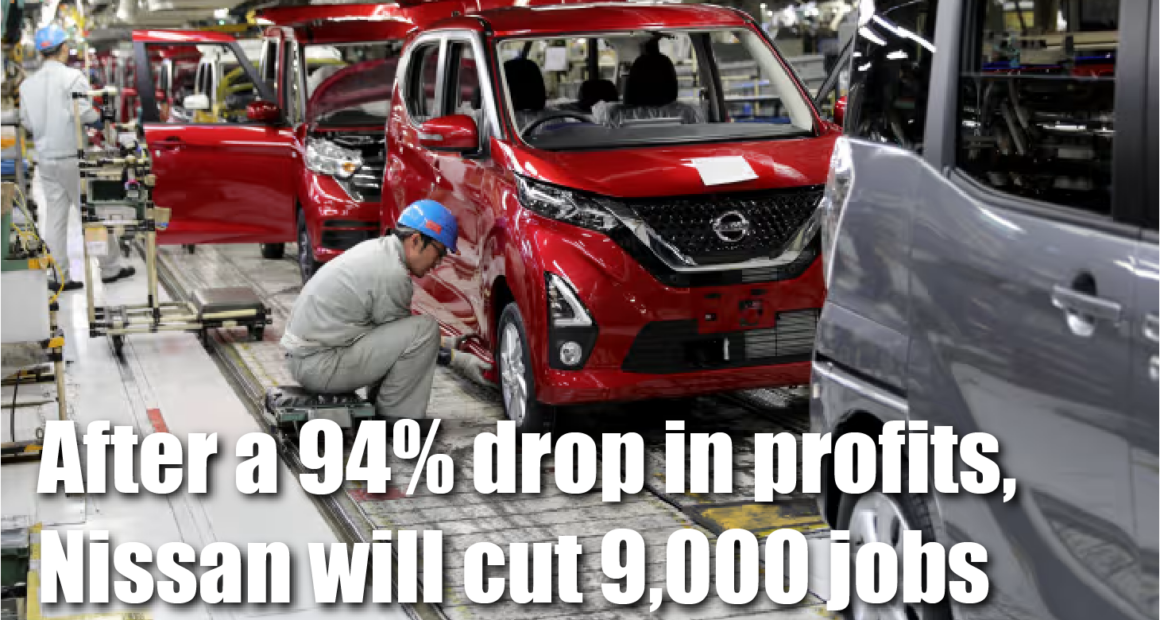Nissan has faced several financial difficulties over the past few years. These include slowing demand for their vehicles in major markets like North America and Europe, issues with leadership after the arrest of former CEO Carlos Ghosn in 2018, and the overall global economic slowdown. The pandemic and global supply chain disruptions also negatively impacted car manufacturers, including Nissan.
Due to declining sales in North America and rising costs, Nissan Motor Company has announced that it will cut 9,000 jobs and reduce production capacity. From April to September, its operating income fell by 94%, dropping to 19.2 billion yen, or nearly 125 million US dollars. Sales declined by 1.3% compared to the previous year, and its operating profit fell to 5.9 trillion yen, or approximately 39 billion US dollars.
The decline in demand for vehicles in China due to the shift to electric vehicles, along with rising production costs in North America, has contributed to the downturn. In response to the weakened business performance, Nissan has announced plans to reduce its global production capacity by 20% and complete the planned workforce reductions by the end of March 2027.
Nissan also stated that it is reducing its stake in Mitsubishi Motors, which it currently holds 34%. According to a statement released on Thursday by Mitsubishi Motors, Nissan has bought back up to 10% of its shares in the market.
Nissan has lowered its sales forecast for the current fiscal year and mentioned that it is unable to provide an estimate for its profit outlook. The company also stated that it will continue to implement structural changes and plans to review its management system by the end of April.
This news reflects Nissan’s financial struggles, primarily due to slowing sales, rising production costs, and changing market dynamics. The company is making strategic adjustments, including cutting jobs, reducing production, and reassessing its investment in Mitsubishi Motors, all aimed at stabilizing its finances and restructuring for future challenges.









